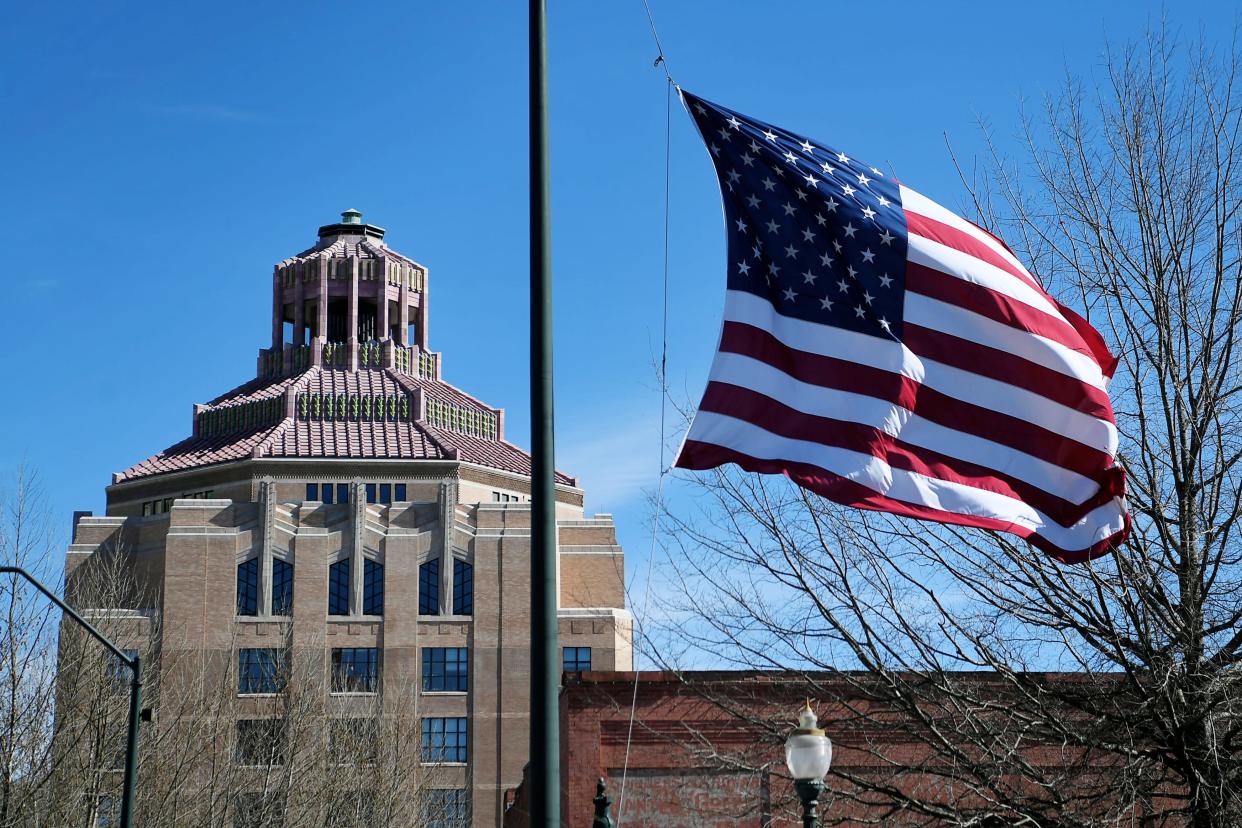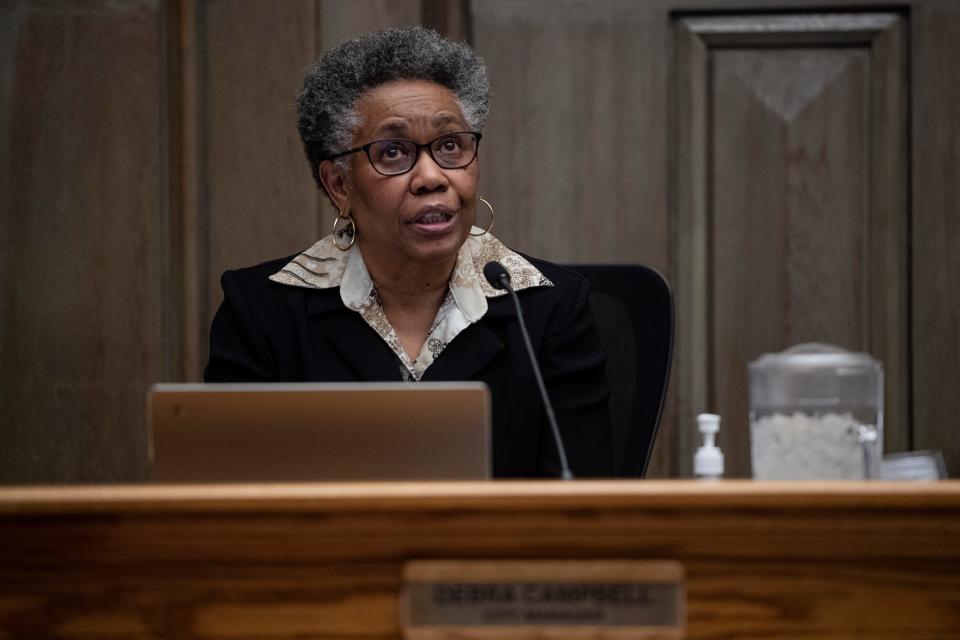Asheville passes $240M budget; pay increases for police, other staff; uses fund balance

ASHEVILLE - The City Council has unanimously passed a $240 million budget with a pay bump for all employees, the biggest for the police department, which continues to struggle with recruitment and retention of officers.
New spending went to the 5% staff pay increase ― 6% for police ― as well as inflation, $510,000 for the reparations fund for Black residents, $500,000 for the housing trust fund and other areas.
Though sales and property taxes continued to grow, costs exceeded revenues, and with the council not wanting to raise property taxes, the city dipped into its fund balance to make up the $7.9 million difference. State law does not allow local governments to run deficits.
"There's always more needs in our community and more we wish we could do," said Mayor Esther Manheimer. "But we're trying to maximize what we do have without creating a greater burden on the community from a financial standpoint."
Council members took the 6-0 budget vote June 13, prior to the start of the July 1 fiscal year. Council member Sage Turner recused herself because of her relationship with the nonprofit Asheville Downtown Association, which receives city funding. A similar issue with other council members had been dealt with by voting separately on the nonprofits' funding, but Turner's relationship with the downtown organization had been overlooked until she brought it up before the vote.
The Asheville Police Department, which has seen heightened staffing problems since the 2020 racial justice protests after the murder of a Black man, George Floyd, by white police officer Derek Chauvin, has faced new controversies after charges brought against reporters and homeless protestors now on trial and the violent May 13 arrest of Devon Whitmire.
But city officials made little mention of policing on the day of the budget vote.

City Manager Debra Campbell, who is tasked with proposing a budget to the council, addressed the overall pay increases, saying they would be a way to deal with staff turnover in many departments.
Future budgets would look to boost pay for all different types of employees who do additional training, Campbell said.
"Part of that process is what we are calling a 'career ladder plan,' which provides a clear path and opportunities for upward mobility for employees. As your training and skills have upgraded, your pay will be upgraded as well," she said.
Council member Kim Roney was critical of much of the annual spending plan, but said it did enough for her to support it.
Roney noted the budget did not include a $20.10 living wage "based on the cost of housing to recruit and retain staff for the quality, equitable services our community deserves."

She said more needed to be spent on the climate crisis and, in a criticism of police spending, said she supported new approaches to public safety such as paramedicine to deal with addiction and overdoses.
"If we limit investment in a strong, reliable public safety system moving forward by focusing solely on attempting to go back to a business as usual model, then we will miss the opportunity to shift to data-driven options that are available when the community needs us to pivot to meet this moment," she said in a prepared statement.
Council member Antanette Mosely, expressing surprise and happiness over Roney's yes vote suggested the council forward the concerns voiced by Roney to the city manager "so that perhaps we could even amend the budget later in the year" to include them.
Taxes, fees
Some details on the taxes and fees that will pay for the $240 million budget, a 10% increase from last year:
Keeps a property tax rate of 41.30 cents per $100 of assessed valuation. That's $1,239 annually on a $350,000 home. (City taxpayers also pay Buncombe County property taxes. Most also pay an Asheville City Schools property tax.) Property taxes would generate $83 million.
Sales tax revenue is up 10% to $44 million.
Water, garbage, stormwater and other fee increases are estimated to generate an additional $6.5 million.
How it will be spent: police, I-26
Gives a 5% raise and other benefits increases to employees, with police getting a 6% increase. That, plus 20 new city positions would cost $12 million.
Overall Asheville Police Department Funding would climb 14% to nearly $34 million with 269 employees, most of them sworn officers.
Answer Man: Has the Asheville Police Department been defunded? We break down the numbers
More money for police: Chief calls for Asheville police to be highest paid in state
$4 million for aesthetic upgrades to the state's new I-26 route through Asheville, including walking and bike paths.
A 9% increase for the water resources department, up to $44 million, with potentially more coming after review of causes of widespread service losses in December.
Up to $875,000 annually for major upgrades to McCormick Field, home of the Asheville Tourists baseball team.
Joel Burgess has lived in WNC for more than 20 years, covering politics, government and other news. He's written award-winning stories on topics ranging from gerrymandering to police use of force. Got a tip? Contact Burgess at jburgess@citizentimes.com, 828-713-1095 or on Twitter @AVLreporter. Please help support this type of journalism with a subscription to the Citizen Times.
This article originally appeared on Asheville Citizen Times: Asheville passes $240M budget; more pay for police, other staff

